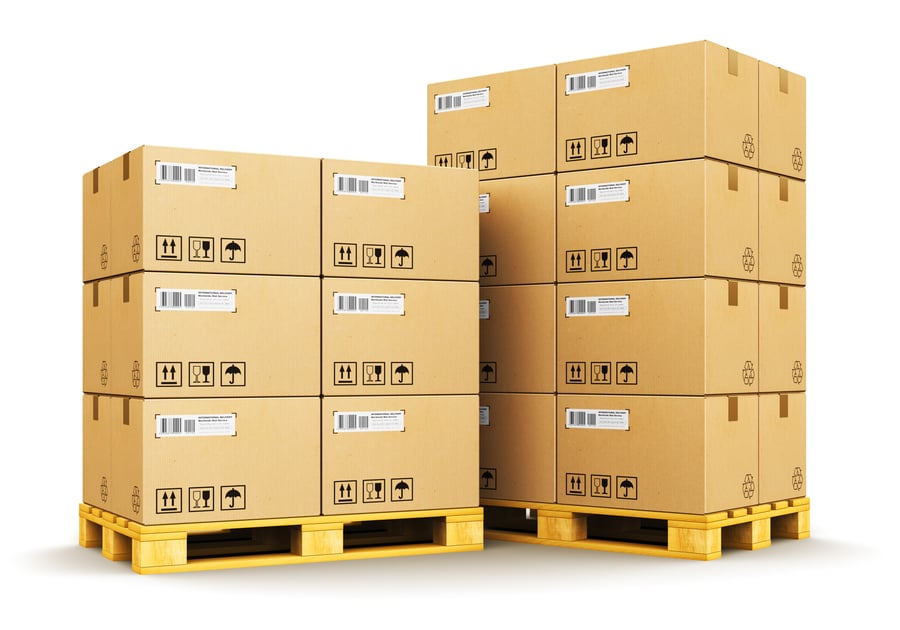
Let’s face it, less-than-truckload (LTL) can be one of the hardest freight modes to get “right.”
Shippers need to know:
-
The National Motor Freight Classification (NMFC) class ratings.
-
Confusing tariff schedules that seem to be written for Harvard law graduates.
-
Czar tariffs and provider’s tariff. Not the same, even when made to sound that way in a sales call.
-
Crazy discount levels. Seriously, 85% off a carrier’s LTL rates seems like something you would find in a retailer's Black Friday mailer.
-
Service coverage networks that differ significantly from LTL carrier to LTL carrier.
-
Consolidations, pooling and other programs available for larger LTL shippers.
-
… and what seems like countless other variables.
The small sample of issues is just about standard dry LTL freight. When it comes to temperature controlled LTL, the complexities multiply with temp standards, sailing schedules and co-mingling of other product in the trailer.
 In other words, LTL can take a lot of energy away from other priorities for a company to maintain its competitive advantage.
In other words, LTL can take a lot of energy away from other priorities for a company to maintain its competitive advantage.
A few of our contemporaries recently asked us why InTek Freight & Logistics provides shippers with easy access to so much information on the competitive landscape through its “Best of” blogs like we recently published on truckload, freight brokers, intermodal and managed transportation services.
The reason, in addition to all the above complexities each mode seems to have, we share so much on the competitive landscape is a shipper’s supply chain is the lifeblood of their company.
The mega-mergers in the freight and logistics market have not helped in an industry that seems to be looking to craft a one size fits all model.
A seismic shift in the LTL world occurred in 2023, affecting this list moving forward in 2024 and beyond. It had been a "top 11," but now it's a "top 10," as one of the top businesses in this space is no longer - with the shuttering of Yellow Trucking (also known as YRC Freight). The other leading carriers have been picking up the slack - and terminals - since the news broke in August.
Top 10 LTL Freight Carriers:
- FedEx Freight
- XPO
- Old Dominion
- TForce Freight (formerly UPS Freight)
- Estes
- ABF Freight/ArcBest
- R+L Carriers
- SAIA
- Southeastern Freight Lines
- Averitt
So, from our perspective, the more information we can provide freight and logistics buyers in their journey to the best solution, the happier everyone will be at the conclusion. For that reason alone is why we feel it is important to be as transparent as possible to the alternatives.
With that behind us, let’s jump in with our next “Best of” series with the top LTL freight companies.
Prefer your "Best ofs" in video form? Watch here:
Best LTL Freight Carriers
FedEx Freight
Location: Memphis, Tennessee
Website: www.fedex.com/en-us/shipping/freight-services.html
Asset / Non-Asset: Asset
Founded: 1973
XPO
Location: Greenwich, CT
Website: www.xpo.com
Asset / Non-Asset: Both
Founded: 2011
Old Dominion
Location: Thomasville, North Carolina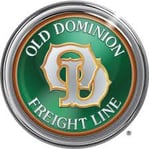
Website: www.odfl.com
Asset / Non-Asset: Asset
Founded: 1934
TForce Freight
Location: Richmond, Virginia
Website: www.tforcefreight.com
Asset / Non-Asset: Asset
Founded: 1935
Estes Express Line
Location: Richmond, Virginia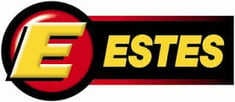
Website: www.estes-express.com
Asset / Non-Asset: Asset
Founded: 1931
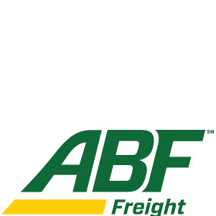
ABF Freight/ArcBest
Location: Fort Smith, Arkansas
Website: arcb.com/abf-freight
Asset / Non-Asset: Asset
Founded: 1923
R&L Carriers
Location: Wilmington, OH
Website: www.rlcarriers.com
Asset / Non-Asset: Asset
Founded: 1965
Saia Inc.
Location: Johns Creek, Georgia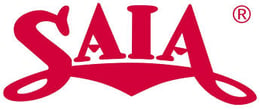
Website: www.saia.com
Asset / Non-Asset: Asset
Founded: 1924
Southeastern Freight Lines
Location: Lexington, SC
Website: www.sefl.com
Asset / Non-Asset: Asset
Founded: 1950
Averitt Express
Location: Cookeville, TN
Website: www.averittexpress.com
Asset / Non-Asset: Asset
Founded: 1971
So, now that you are armed with the basic information on the top LTL freight providers in the market, consider what is important to your business so you can make an objective decision on what LTL provider will be the best fit for your supply chain.
How to Choose an LTL Freight Provider
Other than XPO, which is both asset and non-asset, one additional thought to consider in your decision process is whether an asset or a non-asset LTL provider is a better fit. We can say both have their place.
 If your business wants a one-stop shop where everything would be handled by one provider and in one system, we’d suggest working with a non-asset provider with a high LTL volume spend that allows them to drive highly competitive rates, along with providing a world-class TMS platform or managed transportation service division.
If your business wants a one-stop shop where everything would be handled by one provider and in one system, we’d suggest working with a non-asset provider with a high LTL volume spend that allows them to drive highly competitive rates, along with providing a world-class TMS platform or managed transportation service division.
Before closing out this article, we do want to talk about some of the confusing issues in LTL to make sure you are looking to make a change for the right reasons. Often times, when talking with an LTL, we find the issue is with the shipper and the LTL provider is not communicating effectively to help make the solution successful for the shipper.
So, to help in the communication process, here are some topics LTL shippers need to better understand for success:
-
Volume Quotes / Spot Quotes: It makes sense to request a volume quote is when an LTL shipment is greater 10,000 and / or greater than 8 pallets. Most likely loads that fall into this category should go truckload, but it still makes sense to quote with LTL to make sure the most economical option is known.
-
Another point to be made here is to know you LTL tariff. Non-stackable and irregular sized shipments have significant accessorials associated with it, so make sure you quote these, if not a standard shipment for your business or you will be risking some significant charges.
-
Limited Access Charges: Some locations shippers deliver to do not have docks, the personnel to unload the freight or other delays or labor is needed to complete cause these charges, so know your delivery docks well and plan ahead.
-
Density: The point here is LTL carriers have density rules in their tariffs. Density is to account for very light shipments that take up more space than what is typical for a standard pallet size. There are three terms to know on this topic that cause issues for shippers:
-
Cubic Capacity: LTL carriers impose this rule to protect themselves for lightweight freight that occupies more than their fair share of space in a trailer.
-
Linear Foot Rule: Industry standard is shipments occupying 10 linear feet or more of trailer space are charged for 1000 lbs per linear foot.
-
Oversize: This applies to any shipment with a dimension over 12 feet.
-
 Delivery Appointments: The long and short of this topic is the shipper needs to know their customers’ dock routines, so the LTL provider can properly handle the deliveries. Misunderstanding in this area can cause delays and much frustration. To minimize issues keep these points in mind:
Delivery Appointments: The long and short of this topic is the shipper needs to know their customers’ dock routines, so the LTL provider can properly handle the deliveries. Misunderstanding in this area can cause delays and much frustration. To minimize issues keep these points in mind: -
LTL appointments typically cannot be made until the freight arrives at the destination terminal.
-
Notify before delivery can be set-up to hold up the delivery before the truck is on the way to ensure a delivery attempt is not made before the customer is available to take the delivery.
-
Freight Class: This is probably the number one issue we see shippers have with their LTL freight. Commodities are divided into 1 of 18 classes ranging from class 50 up to class 500. As a rule, the higher the class the more expensive it will be to ship. The classifications are primarily based on density and value.
-
Also know if the freight is continually misclassified the shipper’s cargo will be flagged every time for an audit, which will slow up transits along with creating headaches. In other words, get help if this is an issue with your freight.
-
-
If the shipper does not properly classify their freight under the National Motor Freight Classification (NMFC) rules, the LTL carrier certainly will and disputing the charges can be difficult and time-consuming.
-
Restricted or Prohibited: Prohibited is cut and dry, but restricted can differ by LTL carrier, so ask questions up front to avoid problems down the road.
-
Most Common Accessorials:
-
Inside Delivery. Occurs when the driver needs to move the freight into the customer’s location.
-
Lift Gate. Some locations do not have docks that are truck high, so a truck with a hydraulic lift is necessary to get the freight off the truck for delivery.
-
Sort / Segregation. This is when the receiving location asks to have its freight sorted down after delivery.
-
Detention. In the LTL world, the first 30 minutes of wait time before being unloaded is free.
-
Residential. Freight delivery is made to a home residence. The point to be made here is there are carriers in the market that specialize in final mile delivery that are far more competitive than the “typical” LTL provider, so do your homework.
Hopefully, you found the above information to be helpful and if ever you are looking at alternatives to your shipping needs we here at InTek would like to be a part of that conversation.
Get Updates
Featured Articles
Categories
- Freight & Shipping Costs (40)
- Freight Broker (57)
- Freight Forwarder (2)
- Intermodal Transportation (161)
- International & Cross Border Logistics (35)
- Logistics & Supply Chain (354)
- Logistics Service Provider (74)
- LTL (38)
- Managed TMS (48)
- News (26)
- Supply Chain Sustainability (10)
- Transportation Management System (37)
- Truckload (110)
- Warehousing & Distribution (40)





